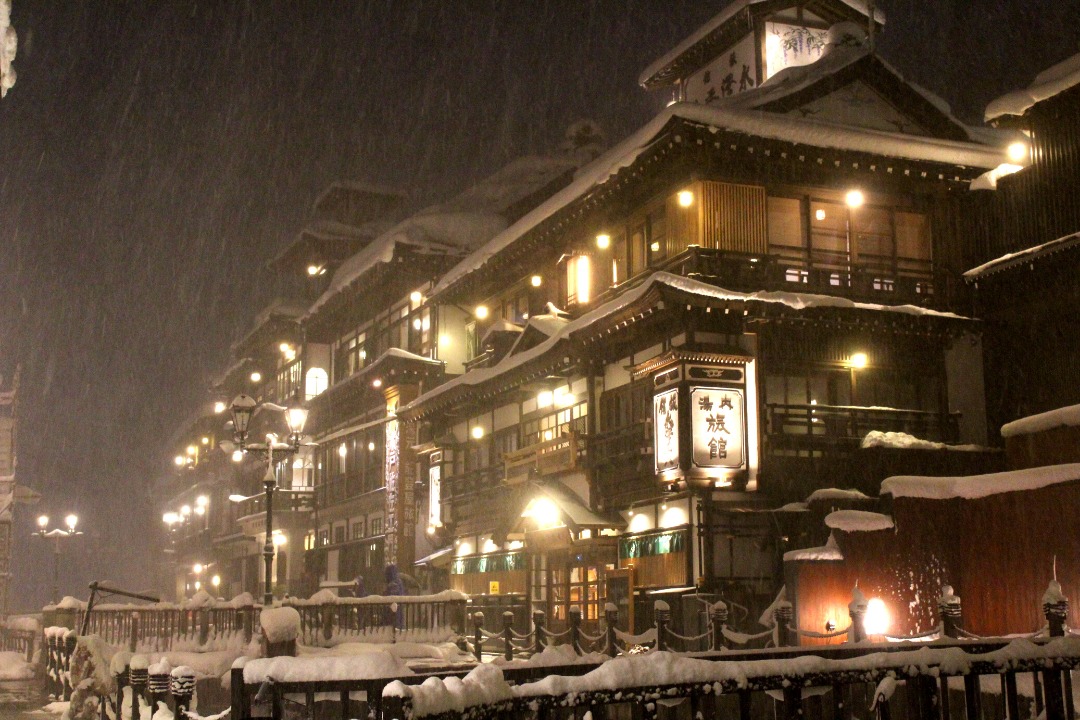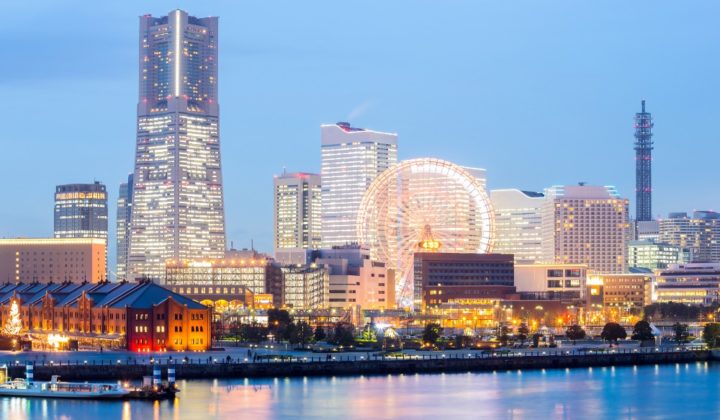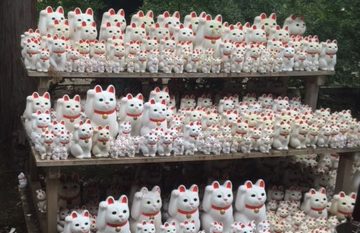The small mountain town of Ginzan Onsen, which lies to the east of Yamagata, is a lesson in time travel for those looking to explore a town that has roots spanning from the beginning of the Edo period.
The name Ginzan Onsen (銀山温泉), which translates literally to “Silver Mountain Hot Springs”, was given to this old town because of its proximity to the silver mine that once ran through the surrounding mountains. Now, it is better known for its numerous hot springs and wooden buildings.
At the beginning of March, I was lucky enough to get a chance to explore this half-a-millennia old town and one of the historic buildings that line its main streets.
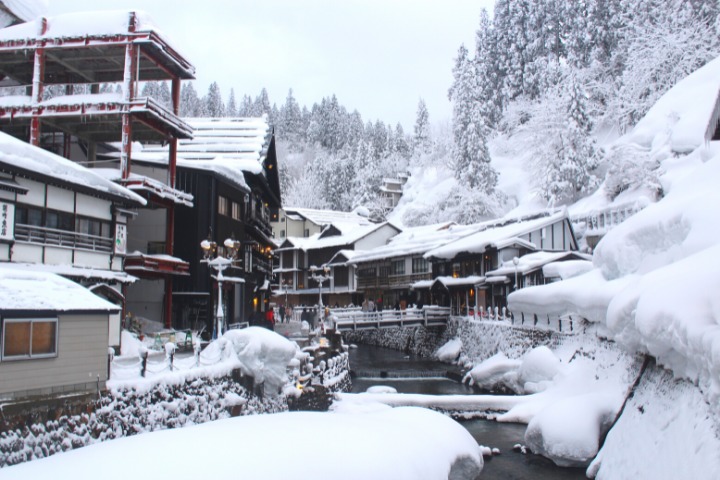
Photo credit: Author
Getting to Ginzan Onsen
The easiest way to get to Ginzan Onsen from Tokyo is via shinkansen. During the winter, when the snow is at its heaviest, going by shinkansen is the safest and fastest option for those looking to explore this pocket of history. While buses, planes and shinkansen are all subject to delay or cancellation, shinkansen is your safest bet when it comes to traversing the snow and ice.
The journey from Tokyo to Oishida Station, which is the closest station to Ginzan Onsen, takes around three and a half hours by shinkansen, and when you arrive, you will need to take a further bus to the town, which takes around 35 minutes.
However, many of the local accommodations run shuttle bus services to and from the station, so if you have planned to stay in one of the ryokan, make sure to check in advance as they may be reserve booking only!
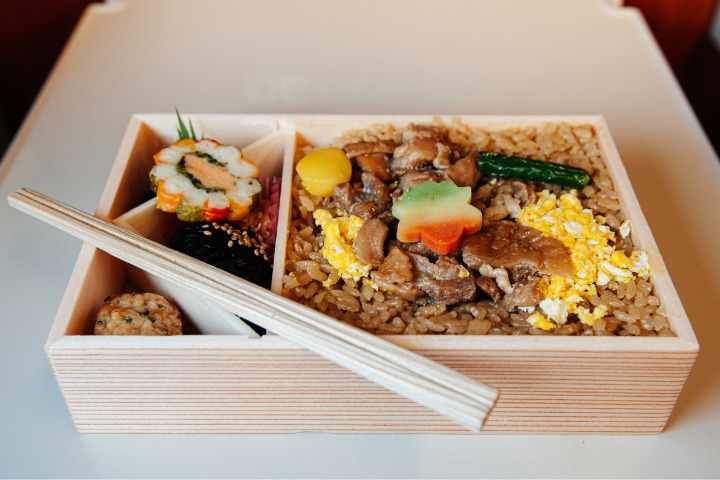
Photo credit: Canva
While you can buy snacks and drinks on the shinkansen, I’d recommend buying ekiben (駅弁 station lunch box) and something to drink at Tokyo station before you leave, as there aren’t many choices for food near the station once you arrive at Oishida.
A Night in Ginzan Onsen
Prepare in Advance!
If you are looking to stay the night in Ginzan Onsen during the winter months, be prepared to plan well in advance! As a result of the growing recognition of Ginzan Onsen’s cultural heritage and the popularity of its snow-covered Ghibliesque night views, both ryokan (旅館 Japanese-style hotel) and hotels in the Ginzan Onsen area and surrounding towns often find themselves fully booked up to a year in advance!
And while it is possible for those determined enough to make a day trip to Ginzan Onsen from Tokyo (the first bus from the nearby Oishida Station departs at 09:50 while the last bus departs from the Ginzan Onsen bus stop at 18:21), the recommendation is to stay the night so that you can truly enjoy the night scenery found in this beautiful mountain town.
What’s more, the ryokan in the area, most of which were built during the Taisho era (1912-26), boast beautiful traditional design and are not to be missed out on!
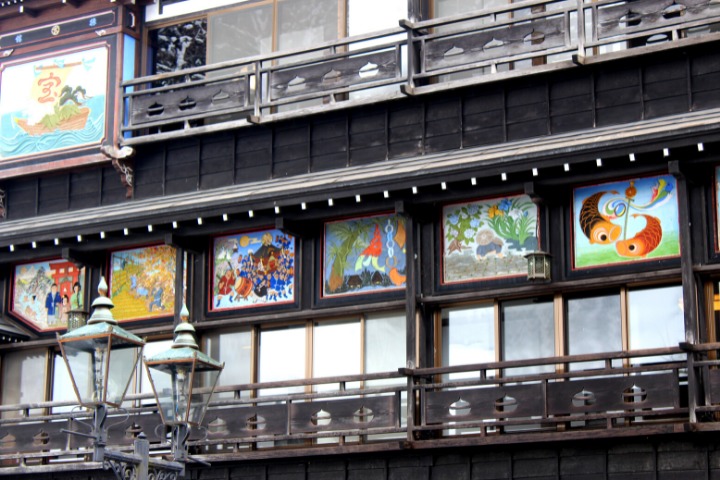
Photo credit: Author
Notoya Ryokan
During our stay, we had the pleasure of being able to stay at the famed Notoya Ryokan (能登屋旅館), a registered Tangible Cultural Property of Japan. Check-in began at 2 pm, which allowed us to relax and warm up before heading out to explore a little.
At 7:00 pm, and back from a good few hours exploring in the snow, we made our way to one of the upstairs floors for dinner. We were given a private room during dinner since we had booked one of the last available rooms (which, unfortunately for my wallet, also happened to be one of the more expensive ones).
From locally sourced Koi fish in a sweet and salty brown sauce to premium Obanazawa Yukifuri wagyu shabu shabu (Japanese-style hot-pot), we were treated to course after course of traditional Japanese dishes and a glass of very tasty fruit wine.
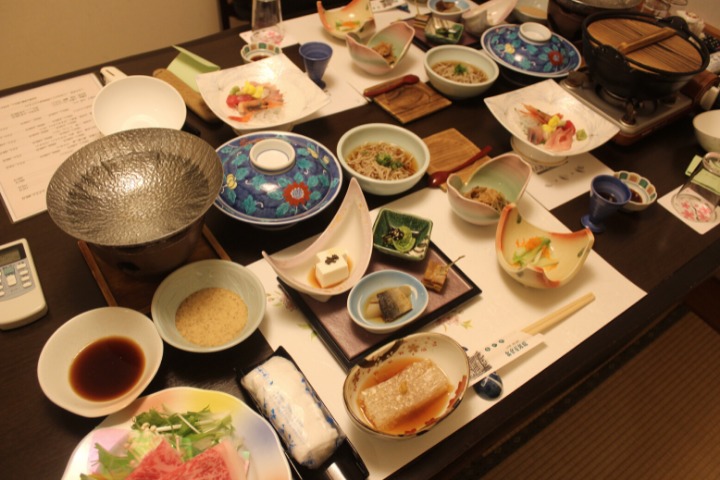
Photo credit: Author
After an extended dinner (there was so much food we spent two hours in the dining room), we got ready to head up to the onsen on the fourth floor. In each guest room, there is a small basket with several yukata of different sizes for guests to use around the ryokan and in the onsen.
If you want to experience the mix of hot onsen and cold air, there is a private rotenburo (露天風呂, outdoor onsen) in both the women’s and men’s bathing rooms that are perfect for those wanting the full outdoor onsen experience!
In the morning, breakfast followed a similar course to dinner. Plate after plate of small but beautifully presented dishes were placed in front of us, and despite the tiny size of each plate, there was so much food that I had a hard time finishing it all!
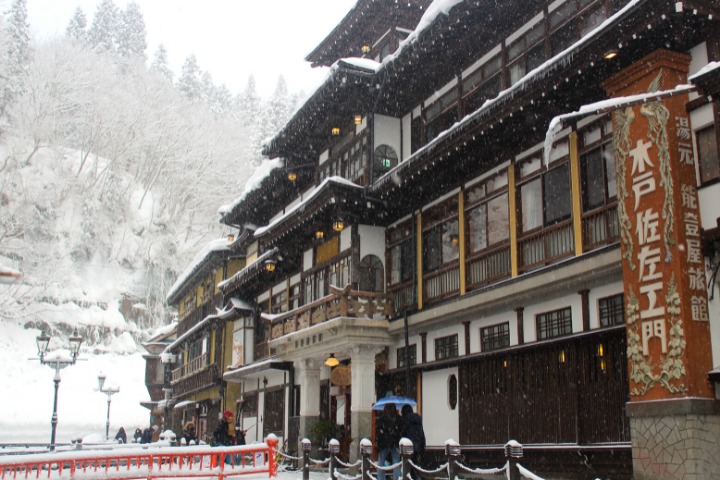
Photo credit: Author
A stay at Notoya Ryokan will put you out of pocket a couple of tens of thousands of yen per person. However, for those looking to enjoy a memorable anniversary or celebrate a special event, it is definitely money well spent.
Things to Do Around Ginzan Onsen
Of course, most people who visit Ginzan Onsen go for the picturesque view. But that doesn’t mean that’s all there is to it! Here are a few things you can enjoy outside of the great view!
Cafe L’rasgayna
If you really want to try transporting yourself back in time, why not try this cafe’s 1920’s style kimono/hakama rental? Choose some fun accessories to make yourself look like a true Taisho-era icon!
Souvenir Shops
Ginzan Onsen is a popular spot for both international and domestic travellers, which means it’s not short of souvenir shops. Despite the town being about a five-minute walk from end to end, I came across three souvenir shops. They all sold products typical to Yamagata, such as kokeshi (limbless dolls) and tasty fruit wines, all of which are perfect souvenirs to bring back to friends!
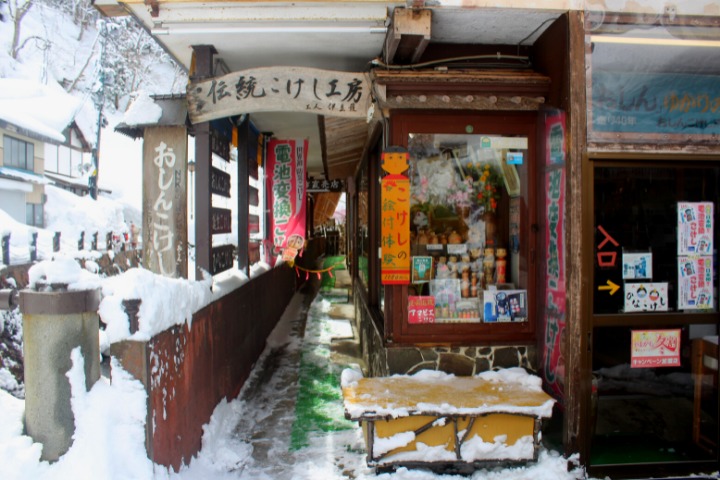
Photo credit: Author
Shirogane Falls
If beautiful natural scenery is your thing, head upriver to visit Shirogane Falls. Whilst most people head to Ginzan Onsen during the winter, Shirogane Falls is perfect for during the Summer and Autumn months. The warmer weather makes it a great spot for hiking, and the river leading to the waterfall makes for a scenic view.
Footbaths
There are several small, free public footbaths dotted around Ginzan Onsen. And while you may not be eager to expose your toes to the biting winter air of Yamagata, the warmth of the small foot onsen will have you forgetting all about the cold in no time! Just don’t forget to bring a small hand towel to dry off your feet afterwards!
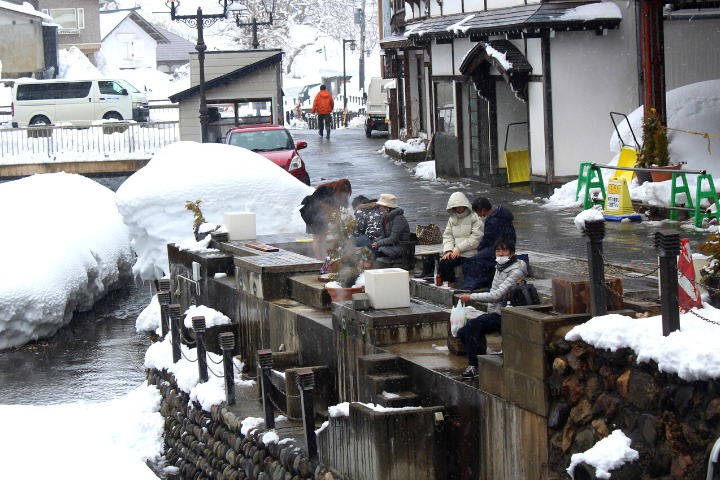
Photo credit: Author
Restaurants
Ginzan Onsen is great for lovers of good food. Many of the restaurants and eateries serve food made using fresh, locally sourced ingredients, which means that you get the authentic taste of Yamagata.
While we didn’t have the time (or space in our stomachs) to try everything, we were able to enjoy Izu-no-Hana’s (伊豆の花) delicious soba, which was light and refreshing after a tasty, but very filling breakfast. However, if you want a taste of this delightful soba, be prepared to queue!
Head to Ginzan Onsen For a Picture-Perfect View!
Although Ginzan Onsen is famed for its beautiful winter scenery, it is just as worth visiting during the warmer months. Take part in a summer matsuri, hike through the overgrown wilderness and transport yourself back in time!
Related Articles:
- Six Instagram-Worthy Snow Photo Spots Around Japan
- One Day Trip to Hakone Onsen: Kanagawa’s Scenic Volcano Mountain
- One Day Trip To The Snow Monkey Park From Tokyo
- Winter Wonderland: What To Do In Zao Onsen
One Day Trip to Hakone Onsen: Kanagawa’s Scenic Volcano Mountain
Featured photo credit: Author

